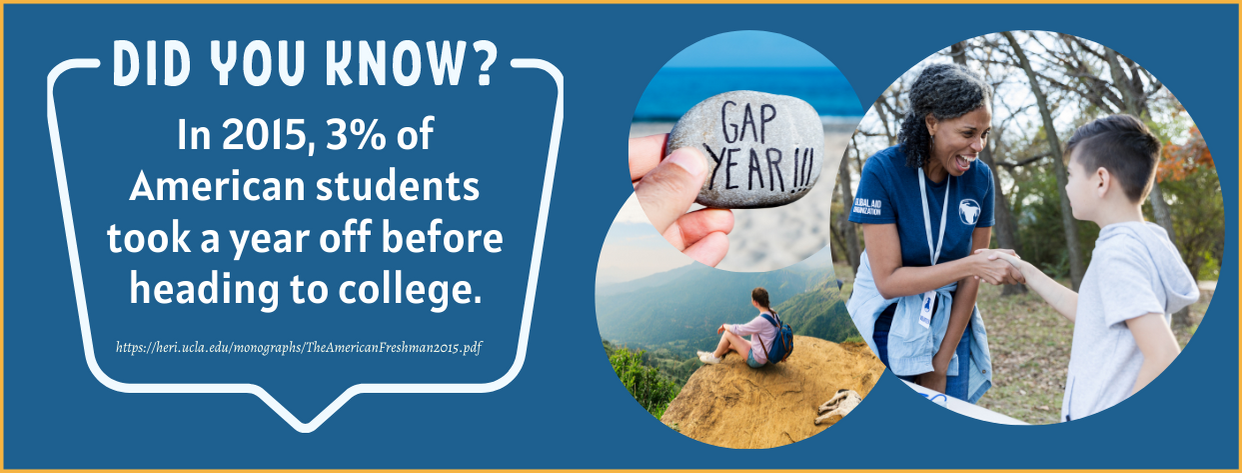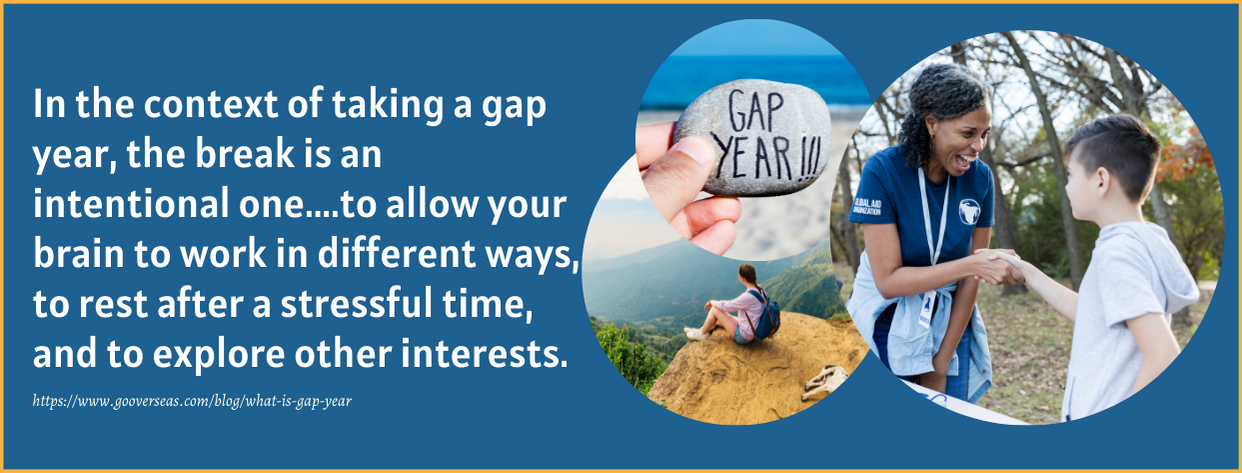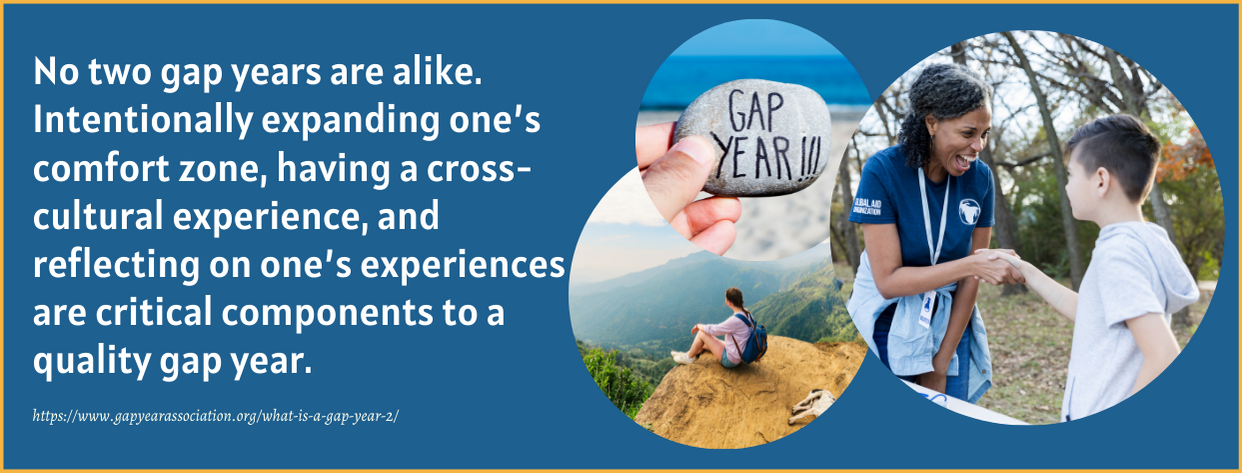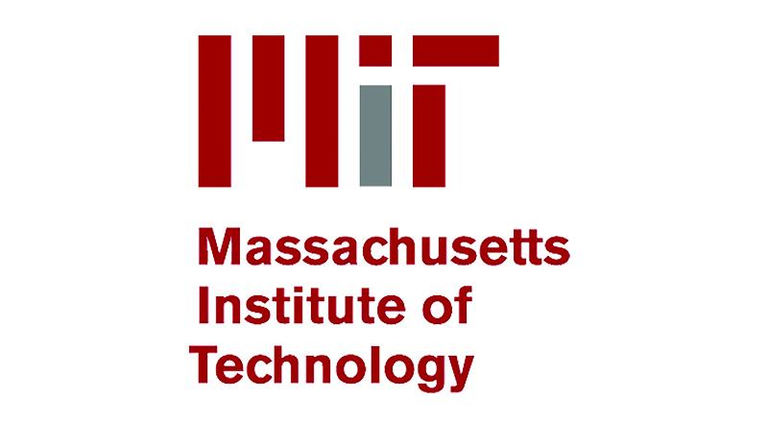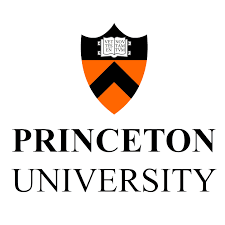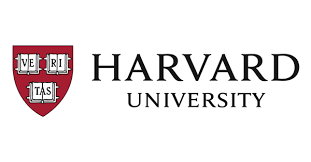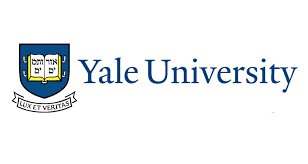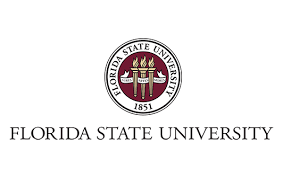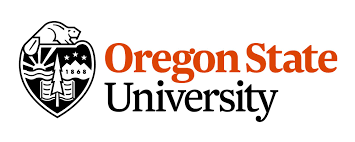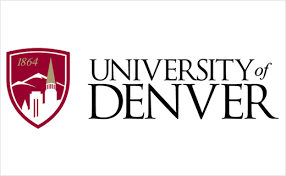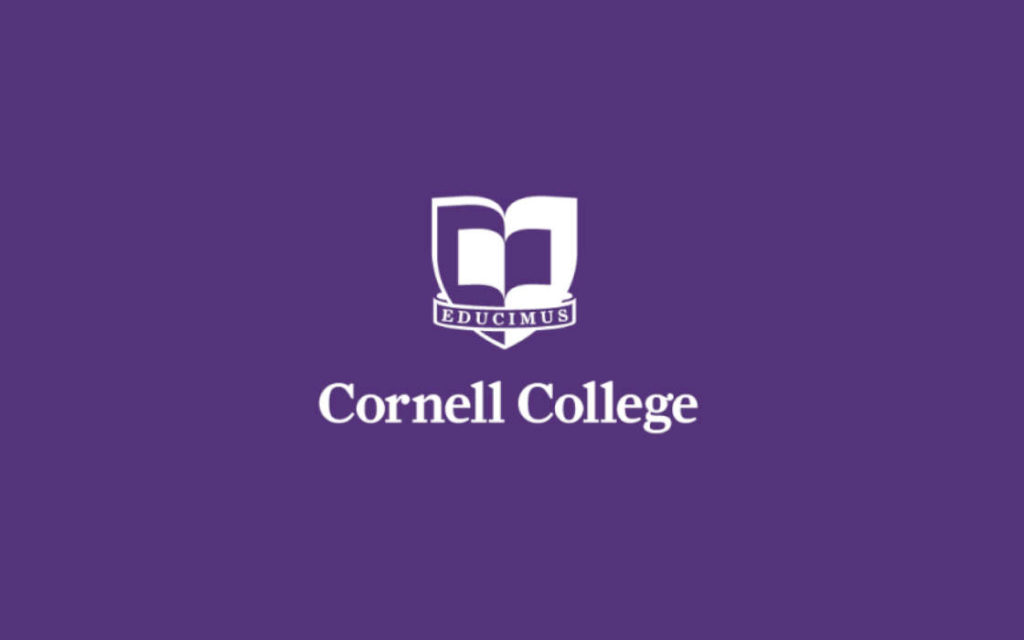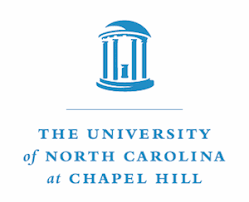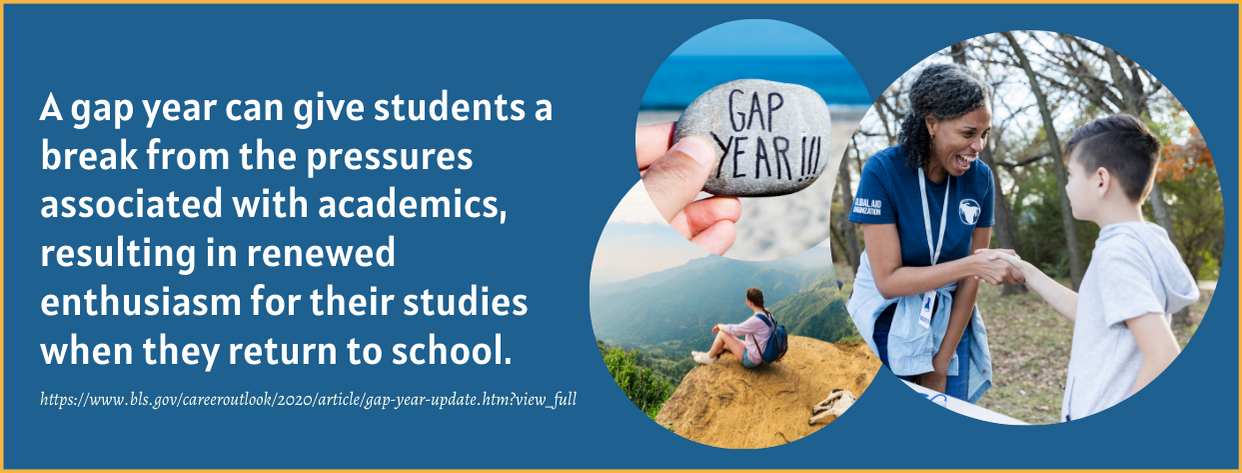Find Your Perfect School
Learning is different for everyone. Some people thrive in fast-paced, rigorous coursework. Others take time to adjust. Some high school graduates may prefer to take a gap year before proceeding with college to weigh their options, determine which major will best fit them, and consider the career they want to pursue.
Before going to a university or starting work, this time off is integral for some as they dedicate themselves to travel and personal growth. In many universities, students are also allowed to explore their passion and overcome academic burnout.
The concept of a gap year isn’t new but remains unfamiliar to many college students. To understand it better, let us look at some of its definitions:
What exactly is a Gap Year?
According to the Gap Year Association, a gap year refers to a period, usually a semester or year, that is devoted to experiential learning. This time off from their studies is usually taken after high school and before they embark on a post-secondary academic journey. A gap year is often used to deepen their practical, professional, and personal awareness.
Usually, a gap year can be taken in any time frame to last for a few months or a full year. It is an intentional decision meant to be used to rest after a particularly stressful time, explore other interests, or follow one’s passion. For many, a gap year presents opportunities to gain skills and experiences.
While a gap year is often misunderstood as a lazy period where one aimlessly trudges through life after high school or in between college semesters, it is understandably a productive time for some. A quality gap year allows incoming and present college students to rest and recharge before returning to the laborious demands of academic life.
Why do college students take a gap year?
The reasons for taking a gap year are different from person to person. It does not necessarily suit everyone. It is a decision that ultimately lies in an individual’s hand. To help students make up their minds, it is important to take a look at the pros and cons so they can better weigh their options and determine whether it suits them or not.
So, how can students benefit from a gap year?
Relax and Rejuvenate
The strain caused by arduous coursework can take its toll. If the demands become too much to handle, it will not hurt college students to take a step back and revive their waning energy by going on nature trips.
Climbing mountains, going for a hike, or heading to the beach can be great ways to be in tune with their surroundings. It will allow their mind to rejuvenate and connect deeply with the natural world. It is the best way to beat burnout.
Informed Decisions
Students who are unsure about their educational paths can take their time to make up their minds by taking a gap year. They will have the time to reflect on what they want to do and how to get there.
Experience and Skills
Quality gap years are often spent learning and growing. Some students gain relevant experience and new skills during this period. Those with vocation-focused degree programs can take advantage of this the most as they develop their knowledge base, boost their confidence, and learn new skills valuable to their future career.
Personal Development
Some spend their gap year abroad where they see and experience whole new cultures. This opportunity allows them to gain awareness of global issues and appreciate diversity. Dealing with people who speak a different language can be a good learning opportunity to hone their communication skills and help them with personal development. All of these can prepare students for facing the remaining years of college.
But, a gap year is not without some cons!
One of the common challenges of taking a gap year is being behind everyone who entered college the same year. This means some of their friends will graduate before them.
Taking a year off or less can also cost money. The process involves organizing and preparing, especially if one plans to go abroad for a short break. There will be fees for the travel costs, living expenses, visa permits, insurance, and internet costs.
The much-needed break can be so distracting that students might not feel like going back to school after a semester or two.
Those who work during the gap year may find that the experience and skills they gained are not the kinds they were hoping for.
What to do before taking a Gap Year?
Make Sure There is Sufficient Fund
Since a gap year comes with many expenses, it is only logical for college students to have enough funds to cover the costs. Some consider doing freelance work to supplement their savings. Others take the gap year as an opportunity to work and earn money.
Ensure that a Plan is in Place
Taking a gap year is no walk in the park. Before taking the leap, you must know what you are getting into! Is the gap year for traveling, learning, working, or volunteering? When they suddenly find so much time on their hands and do not have plans in place, they might use that free time recklessly, rendering the gap year useless. They might end up frustrated, or worse, disappointed.
Learn to Anticipate the Lows
Gap year sounds exciting but keep in mind there’s more to it than that! There will be difficult days that drive you to the edge. Language barriers and feelings of isolation are pretty common. You need to be open to adjustments before falling into a routine. Knowing this will help them deal with unexpected obstacles and see through the whole experience until the very end.
Is taking a Gap Year a good idea or encouraged?
Taking a gap year can be a good idea for some people. It can provide a much-needed break from the rigors of school and give students a chance to explore interests and activities that may not be available during the school year.
Gap years can also be used to travel, work, volunteer, and gain valuable life experience. However, it’s essential to be mindful of the potential costs and to ensure a plan for continuing education.
Ultimately, it is up to the individual to decide whether or not taking a gap year is a good idea or encouraged. A certain amount of dedication to returning to your studies eventually is a must!
Best Colleges Supporting Gap Year
Massachusetts Institute of Technology
A leader in innovation, education, and research, the Massachusetts Institute of Technology not only allows taking a gap year but also supports and encourages its students to do so. Many students apply to the university after a gap year, and even more, students request a gap year after their admission at MIT.
The school believes that taking a gap year can equip its students with richer experiences that will be integral to their personal growth and development, helping them prepare for the rigorous reality of college life.
MIT allows its incoming freshmen to defer their enrollment for one or two years after admission. They only need to confirm their intent to enroll and formally submit a request for deferment to the MIT Dean of Admissions.
Some common reasons for taking time off by MIT students range from gaining employment and traveling to entering the military and joining a religious service. Students, however, must take note that they cannot defer enrollment at MIT so they can enroll in courses at another university.
Princeton University
Princeton University is committed to providing quality education to its students. They also believe that a rewarding way to enrich their Princeton education goes beyond its thresholds. It is one of the many universities in the country that gives ample opportunities for students to expand their horizons and deepen their undergraduate education through their internship and study abroad programs.
They also have the Novogratz Bridge Year Program running for nine years, open to students who accepted the university’s admission offer and formally indicated their intention to enroll at Princeton.
This program gives undergraduates a chance to start their Princeton experience by spending a year of public service abroad. Through this initiative, they can study the local language and immerse themselves in the local culture by living with carefully selected families. Many volunteers in organizations that aim to serve the needs of local communities.
There are also plenty of opportunities to participate in cultural enrichment activities to broaden their understanding of diversity. Some areas of assignment include education, health, economic development, and the environment.
Princeton pays for the core costs of the bridge year program, but personal expenses, airfare, immunizations, and document fees are expected to be shouldered by the participants and their families.
Harvard University
As a leading Ivy League, Harvard University fully supports students deferring their matriculation to travel, pursue a special project or activity, find employment, or spend time off in another meaningful way. Some Harvard incoming students take this opportunity to explore other cultures, conduct research, and delve into a creative passion.
The gap year is specifically designed for first-year Harvard students who are still considering college and want to explore their interests before deciding what path to take.
Some of the gap year opportunities encouraged by Harvard include City Year. This program allows students to get experience in education and public service, where they can serve full-time as tutors in one of City Year’s 28 urban locations across the country for ten months.
There are also the World Wide Opportunities on Organic Farms, where students can volunteer worldwide. These farms provide food and accommodation in exchange for work. Some students defer their enrolment for two years to attend the military or religious service.
Yale University
Prospective Yale undergraduate students are presented with an opportunity to take a Gap Year. They have the option to take one full year off to rethink their choices and determine their goals and plans before embarking on college.
Yale University encourages students to take a gap year to gain enriching experiences that will help shape them as college students. The Gap Year programs they support include cultural immersions and service abroad, gaining hands-on experience through enrolment, and many more.
One Gap Year program is designed for African scholars, many of whom later go to Yale University. They can attend the African Leadership Academy, a high school located in South Africa that aims to develop the continent’s future leaders.
Students who attend ALA can take a two-year pre-university course with Entrepreneurial Leadership, African Studies, and Writing and Rhetoric curricula. Students in between high school and university are also welcome.
Duke University
Students who want to take a gap year will be pleased to know that at Duke University, they can be provided with funding and other forms of support before enrollment. The Duke Gap Year program was conceived by Laura and Eliana, offering the university a $1.5 million grant for the initiative. This program is available to students who want to take a gap year between secondary school and college.
Selected students are entitled to financial support to the tune of $5,000 to $15,000. Those who participate in the gap year are assured of their admission to the university provided they agree to Duke’s deferral conditions.
The Duke Gap Year program encourages personal growth, exploration of one’s interests, and opportunities to participate in meaningful service and civic engagement. Some of the initiatives supported by Duke University for Gap Year include volunteering in youth organizations such as the YMCA or the Boys and Girls Club, community art programs, women’s shelters, immigrant and refugee services, and crisis support centers, among others.
Personal engagement plans are also accommodated. They can range from creative writing and skill-building to research, internship, and environmental work.
Florida State University
At Florida State University, newly admitted students are encouraged and supported to take a gap year through the FSU Gap Year and the Gap Year Fellows programs. They have the option to complete their gap year project in 6 to 12 months, whether in international, domestic, or remote settings.
Eligible participants also have the chance to avail of up to $5,000 in grants as part of the Gap Year Fellows program, provided they are centering their project on intercultural service. Senior high school students admitted to Florida State University can defer enrollment and take a gap year by submitting their application to the FSU Gap Year program.
Particularly, the Gap Year Fellows program is one of a kind. Not only do students possibly obtain need-based funding of up to $5,000, but they may also part in transformative experiences that are accessible to them regardless of their family income.
Moreover, students can also seek financial assistance from other gap year associations and fundraising efforts like crowdfunding websites to sustain their gap year plans. It is important to note that students who are granted a gap year opportunity may not apply to other schools within the duration of the gap year, nor should they earn college credit during that period.
College of William and Mary
The College of William and Mary accepts deferral requests from newly admitted students for one semester to a year. They can do this by notifying the Senior Associate Dean of Admission through a letter of intent. It is good to remember that these requests are being looked at on a case-to-case basis.
Those who indicate that they will be spending the gap year for personal growth are generally approved. It is also possible for some to extend their enrollment deferral to two years, especially if they enter the military or a religious service.
The college offers a fall semester program abroad through Verto Education. This program allows students to gain an immersive international experience with academic credits. The gap semester program provides small classes through a custom curriculum. Cultural immersion is also a huge part of it.
Students have the following options for their academic courses at Verto: World Literature in London, Global Health and Environmental Science in Latin America, and European History and Spanish Economics in Madrid, among others.
For those with demonstrated financial needs, assistance from federal financial aid is available. Verto’s Latin American Opportunity Grant also gives additional financial assistance to students who qualify for federal Pell Grants.
Georgia Institute of Technology
First-year students at the Georgia Institute of Technology can defer their enrollment after paying an admission deposit for their original term of acceptance. Their request for deferment can be lodged in the admission office. Once approved, they can take a gap year from their original entry term, but the one-year period may extend to up to two years if mandated by the government, military, or religious service.
The Bridge Year at Georgia Institute of Technology allows students to gain experience and knowledge that will help them set their minds on what they want to do. Some of the opportunities that students can choose from for the bridge year experience include AmeriCorps, Ameson Year in China, City Year, Japan Exchange and Teaching Program USA, Peace Corps, WorldTeach, and Wesleyan Faculty Fellows, among others.
University of Oregon
Gap years and deferral experiences are supported at Oregon University. Incoming first-year students can take a gap year to travel, intern, volunteer, or work elsewhere in the community. A deferral request can be accommodated if the student has submitted an Intent to Register before starting the new semester.
On the other hand, students can spend some time away from the university through various study abroad and fellowship programs. One of them is the Food, Culture, and Sustainability in Italy program, which allows sophomore students and above to experience Italian food and culture in Siena and Tuscany.
They can gain a better understanding of complex food-related issues. They will also develop new insights into the role of food in terms of society, politics, culture, economy, and environment. Some of the courses available for this program include Food, Law, Social Justice, Wine in Italy and the Western World, and Cross-Cultural Communication. There is also university-sponsored study abroad programs amounting to $1,000 to $2,000, such as the Wegmann Scholarship for Chinese Studies.
Portland State University
Portland State University believes that a gap year can positively impact college students’ success in college. They support those who are interested in a gap year, with no specific requirements. However, they stipulate that deferral requests can only be approved if the gap year is intended for personal growth and benefits the students’ college experience.
Newly admitted freshmen students can apply for a gap year by submitting their requests through the university portal. ‘
Some of the organized gap year programs that the school endorses include Raleigh International Expeditions. This international volunteering program aims to help volunteers create long-lasting change in the community, environmental, and adventure leadership projects.
They will cover issues that involve the environment, education, and poverty. The aim is to contribute to sustainable development by equipping participants with relevant skills working with rural communities.
University of Denver
The University of Denver is widely supportive of the idea of a gap year, seeing that it can be a beneficial experience for incoming students. Those who want to defer their enrollment can do so by logging on to their application status page and completing the deferral form.
They will have to provide their plans for the next year and confirm if they decide against enrolling in a degree-granting program at another educational institution. They are also required to submit a tuition deposit of $300 to be considered for deferral.
Organizations like the National Outdoor Leadership School, Up with People, Outward Bound, AmeriCorps, and Where There Be Dragons are the usual partners of the university when it comes to gap year programs. Students will be able to travel abroad and immerse themselves in a different culture.
Sometimes they will have an opportunity to live with a host family, better exposing them to local languages and traditions. Some of these programs also have a service component, meaning students work on particular projects of interest.
The National Outdoor Leadership School offers programs that promote immersive wilderness expeditions and classroom-based wilderness medicine. Students are taught and trained to become leaders in their community.
Cornell College
New students admitted to Cornell College have the chance to weigh their options before enrolling full-time by studying abroad through Verto Education. This organization provides programs to travel and study abroad, whether for one semester or one full year.
Students who wish to participate can defer their enrollment and even use the credits they earn for their Cornell education. However, the request for deferral has a few requirements, including a $300 enrollment deposit to reserve their place in class. Students may not also enroll in degree-seeking college classes.
Verto Programs are available in several countries, including Italy, Costa Rica, Hawaii, Spain, and England. Taking courses through this study abroad program means students can continue their education at Cornell College without the hassle and worry of transferring.
St. Norbert College
St. Norbert College provides opportunities for its students to take part in gap experience programs. After admission to this college, incoming first-year students can complete an online application for the Gap Experience.
The school chooses a maximum of 20 students to be part of the program every year. The tuition covers all the gap year experience costs except travel. Students can also apply for scholarships, academic awards, and financial aid that they receive.
Participating students spend their first semester developing their communication and leadership skills in the following places – Chicago, Utah, Minnesota, Tennessee, and St. Lucia in the Caribbean. They can have a chance to work with Brother David Darst Center, Good News Project, Voyageur Outward Bound, and more.
University of North Carolina
At the University of North Carolina in Chapel Hill, special opportunities await students who wish to learn from cultures and societies all over the globe. They have a lot of options for quality study abroad programs. This includes the Carolina Global Launch, which allows students to study in Ireland, Spain, or Scotland during the fall semester of their first year. They can then enroll at Carolina in the spring semester.
UNC’s Global Gap Year Fellowship funds a gap year committed to service abroad. The fund is around $8,000. The fellowship is in partnership with UNC. Hence the university helps in promoting it and selecting the recipients. The applicants for this fellowship are often diverse, but they all demonstrate an intelligent and curious mind and a commitment to public service.
High school graduates who received their admission to the University of North Carolina’s Early Action deadline have the chance to apply to this prestigious fellowship. Only seven applicants are selected in the end. Consideration is given to students from lower socio-economic backgrounds and those who are underrepresented and first-generation college students.
Tufts University
A premier learning institution in Massachusetts, Tufts University offers gap year opportunities to interested first-year students. They can request a deferral of one semester or one full year to devote to personal development and growth. Students are expected to use the gap year for experiential learning that will help them succeed in college.
One of their global programs for first-year students is the Tufts Civic Semester. This program combines academic coursework with hands-on experience. Students will get the chance to work on local issues focusing on community engagement and social justice.
Some of the issues they will tackle include environmental sustainability and immigrant rights. They will be based in New Mexico, Arizona, and Texas. The program costs can be covered by tuition and fees. Participating students can also use their Tufts financial aid package.

